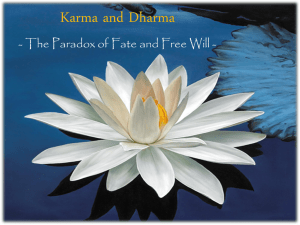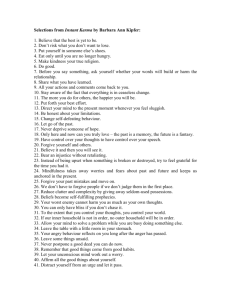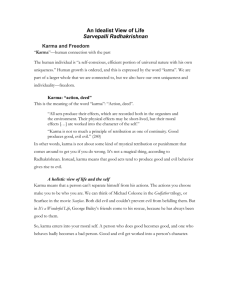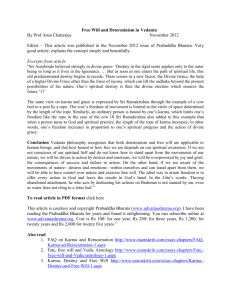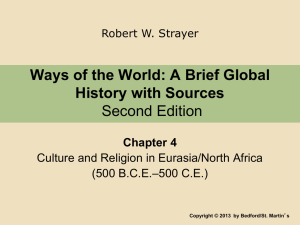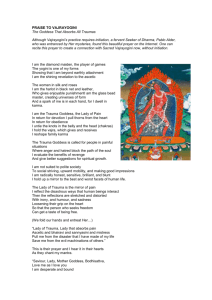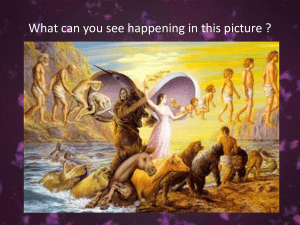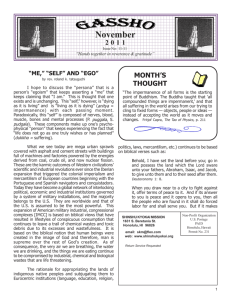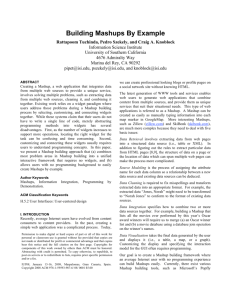KARMA EXAMPLE ESSAYS
advertisement
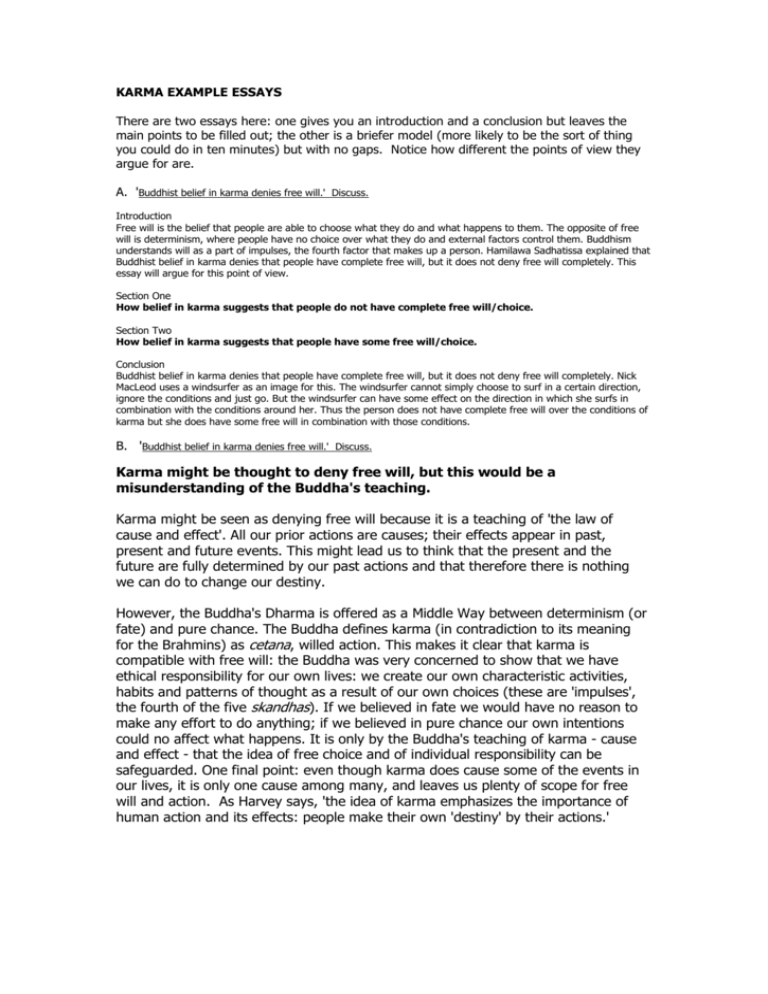
KARMA EXAMPLE ESSAYS There are two essays here: one gives you an introduction and a conclusion but leaves the main points to be filled out; the other is a briefer model (more likely to be the sort of thing you could do in ten minutes) but with no gaps. Notice how different the points of view they argue for are. A. 'Buddhist belief in karma denies free will.' Discuss. Introduction Free will is the belief that people are able to choose what they do and what happens to them. The opposite of free will is determinism, where people have no choice over what they do and external factors control them. Buddhism understands will as a part of impulses, the fourth factor that makes up a person. Hamilawa Sadhatissa explained that Buddhist belief in karma denies that people have complete free will, but it does not deny free will completely. This essay will argue for this point of view. Section One How belief in karma suggests that people do not have complete free will/choice. Section Two How belief in karma suggests that people have some free will/choice. Conclusion Buddhist belief in karma denies that people have complete free will, but it does not deny free will completely. Nick MacLeod uses a windsurfer as an image for this. The windsurfer cannot simply choose to surf in a certain direction, ignore the conditions and just go. But the windsurfer can have some effect on the direction in which she surfs in combination with the conditions around her. Thus the person does not have complete free will over the conditions of karma but she does have some free will in combination with those conditions. B. 'Buddhist belief in karma denies free will.' Discuss. Karma might be thought to deny free will, but this would be a misunderstanding of the Buddha's teaching. Karma might be seen as denying free will because it is a teaching of 'the law of cause and effect'. All our prior actions are causes; their effects appear in past, present and future events. This might lead us to think that the present and the future are fully determined by our past actions and that therefore there is nothing we can do to change our destiny. However, the Buddha's Dharma is offered as a Middle Way between determinism (or fate) and pure chance. The Buddha defines karma (in contradiction to its meaning for the Brahmins) as cetana, willed action. This makes it clear that karma is compatible with free will: the Buddha was very concerned to show that we have ethical responsibility for our own lives: we create our own characteristic activities, habits and patterns of thought as a result of our own choices (these are 'impulses', the fourth of the five skandhas). If we believed in fate we would have no reason to make any effort to do anything; if we believed in pure chance our own intentions could no affect what happens. It is only by the Buddha's teaching of karma - cause and effect - that the idea of free choice and of individual responsibility can be safeguarded. One final point: even though karma does cause some of the events in our lives, it is only one cause among many, and leaves us plenty of scope for free will and action. As Harvey says, 'the idea of karma emphasizes the importance of human action and its effects: people make their own 'destiny' by their actions.'

